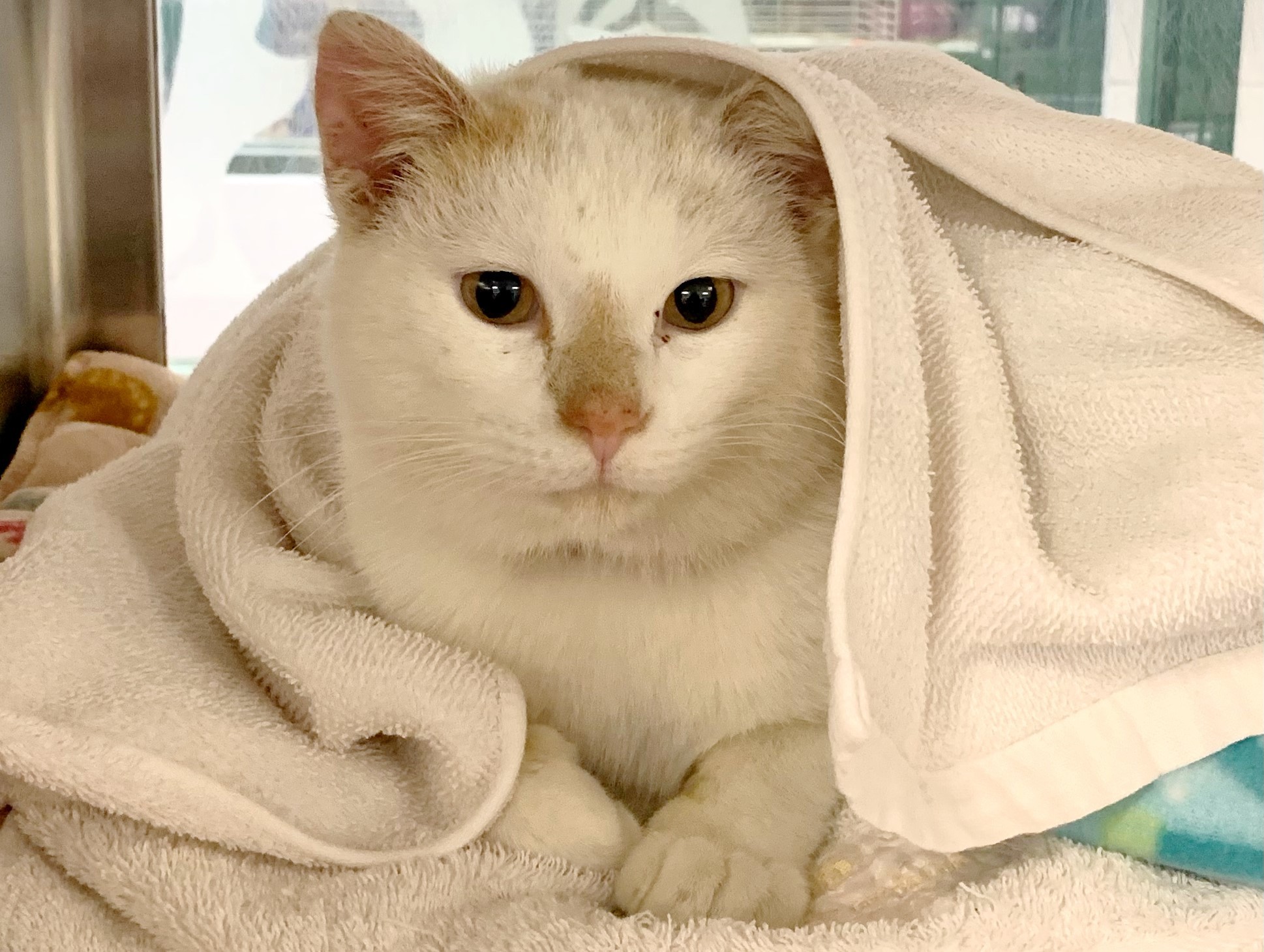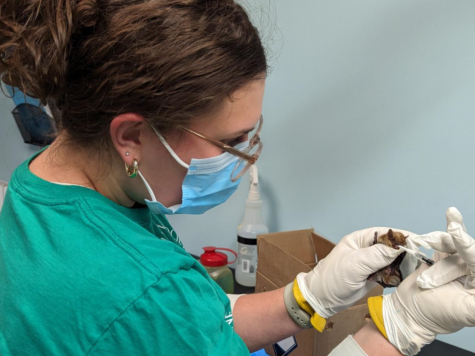Pets are a huge part of so many peoples’ lives. They are there for us through the happy times and the tough times. They bring us so much entertainment, joy, and laughter. We often even see pets as family, so it would be difficult to think about a life without them. There are times, however, when pet owners have to consider whether or not they can keep their pet. At Dane County Humane Society (DCHS), we are dedicated to helping people help animals. This includes supporting pet parents through the difficult decision and process of possibly giving up a pet.
Why people surrender their pets
The reasons for pet surrender are often not planned or expected situations and can vary from behavioral or medical issues with a pet to greater life changes. Imagine that your loveable ten-year-old tabby cat has started having accidents outside the litterbox. Your vet believes she has a chronic medical condition and recommends running a number of tests that would cost a few hundred dollars. If she does have this condition, she would need expensive medication and additional vet visits. On top of everything, you just found out that your employer has to downsize and is going to cut your pay. Or, worse, imagine that you’re laid off from that job. Without that income, you realize that it will be very hard to make sure your family of four is cared for, let alone pay for additional medical expenses for your furry family member. You’re stuck in a terrible position where you begin to consider whether your sweet cat would have a greater opportunity to live a healthy, happy life with another family.
Another common scenario is when a family brings a new pet home and it’s not quite the fit they expected. People find new pets through a variety of ways and it isn’t always possible to know how the animal will do in your home. Say your coworker needs to rehome their two-year-old black lab and he seems like the perfect fit for your family, so you offer to adopt him. The first few days seem to go really well; he loves walks, likes to play with his toys, and snuggles on the couch. Come Monday, you have to go back to work and you figure he will be just fine alone, since he has seemed quite calm so far. When you come home, however, you find that the dog has scratched up the door and chewed the windowsills, chewed up shoes, and went potty on the carpet. On top of this, your neighbor in the apartment next to you stops by and tells you that the dog was howling and barking for hours on end, which they are not happy about. They ask you to figure something out or they will be reporting you to the landlord. You’re concerned about the cost of the damage that the dog can cause and the impact it could have on your housing. You’re at a loss now because you don’t know how to manage this and think the pup might just not be a good fit for an apartment.
Counseling staff at DCHS are experts in working with pet owners who are experiencing situations like these and strive to provide support to anyone who reaches out. Our shelter resource counselors assess each situation, pet parent, and pet individually, and without judgement.
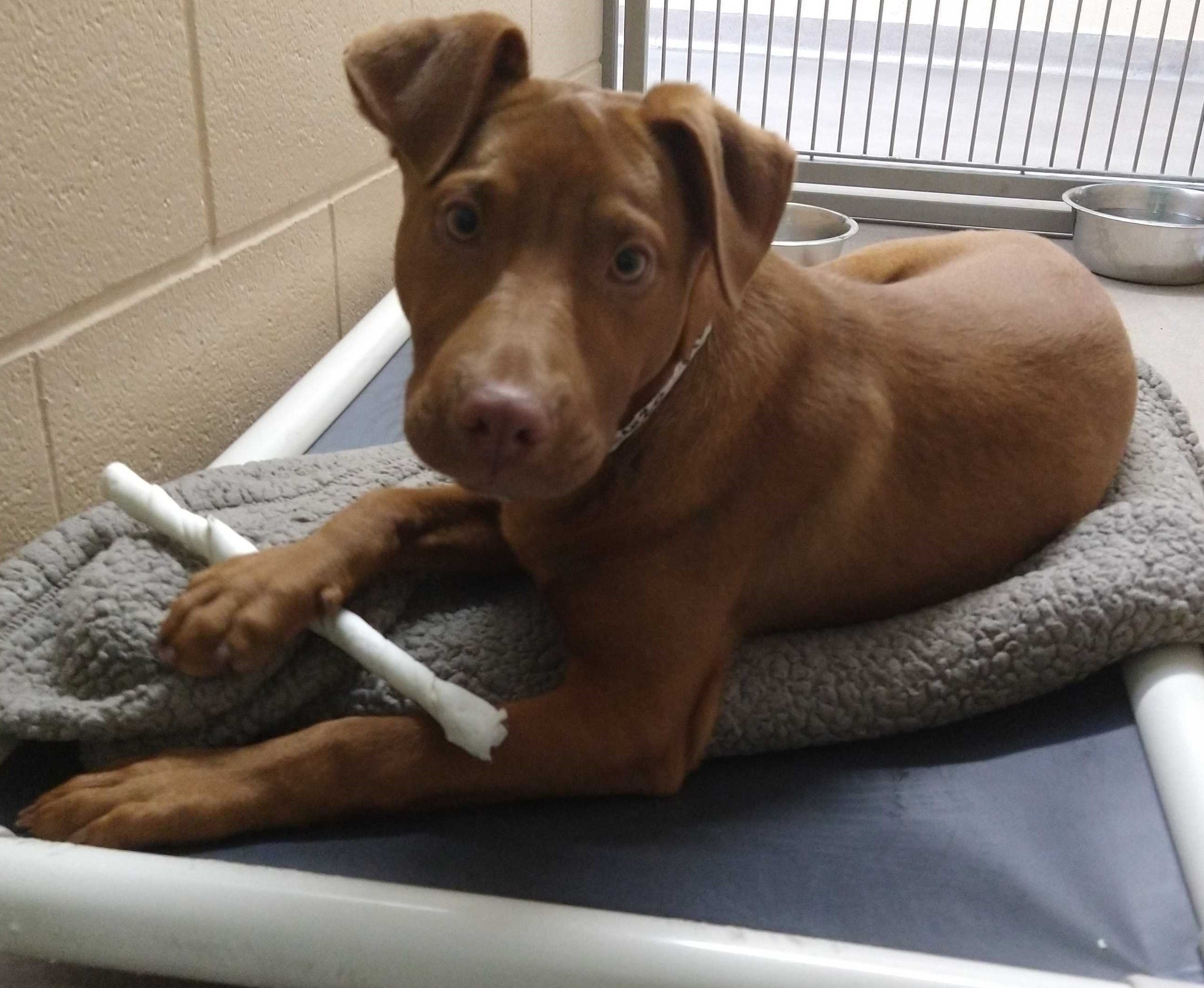
Regardless of the reason, pet owners often feel guilty over giving up a pet because there is still a stigma that surrendering a pet means you’re not a good pet parent. Some might say they would never surrender a pet and that a pet is forever. They may place judgement on people who surrender a pet, implying that they “gave up” on the pet or that they didn’t care enough. This type of attitude doesn’t benefit anyone, especially not the animals we care so much about.
Surrendering a pet does not automatically make someone a bad pet owner and does not mean that they are unworthy of having another pet. As shown by the scenarios above, all people can experience difficulties or stressors throughout their lives that could impact their ability to provide the care that they know their pet needs. Many situations are outside of our control and sometimes you need to ask for a helping hand.
DCHS is here to offer that help!
Our counselors work with pet parents to provide resources, counseling, and guidance to help them keep their furry friend or discuss surrendering their pet. In January 2022 alone, DCHS counselors fielded over 100 consult calls from people looking for support for either surrendering their pet or returning an adopted pet. Many people don’t have access to, or are not aware of, information and resources that could be helpful to them. Pet parents reach out to DCHS because we are a resource they know and they are looking to do what is best for their pet.
We feel that by aiming to approach pet parents and their pets as individuals and by avoiding making judgements, we can foster better relationships and build trust.
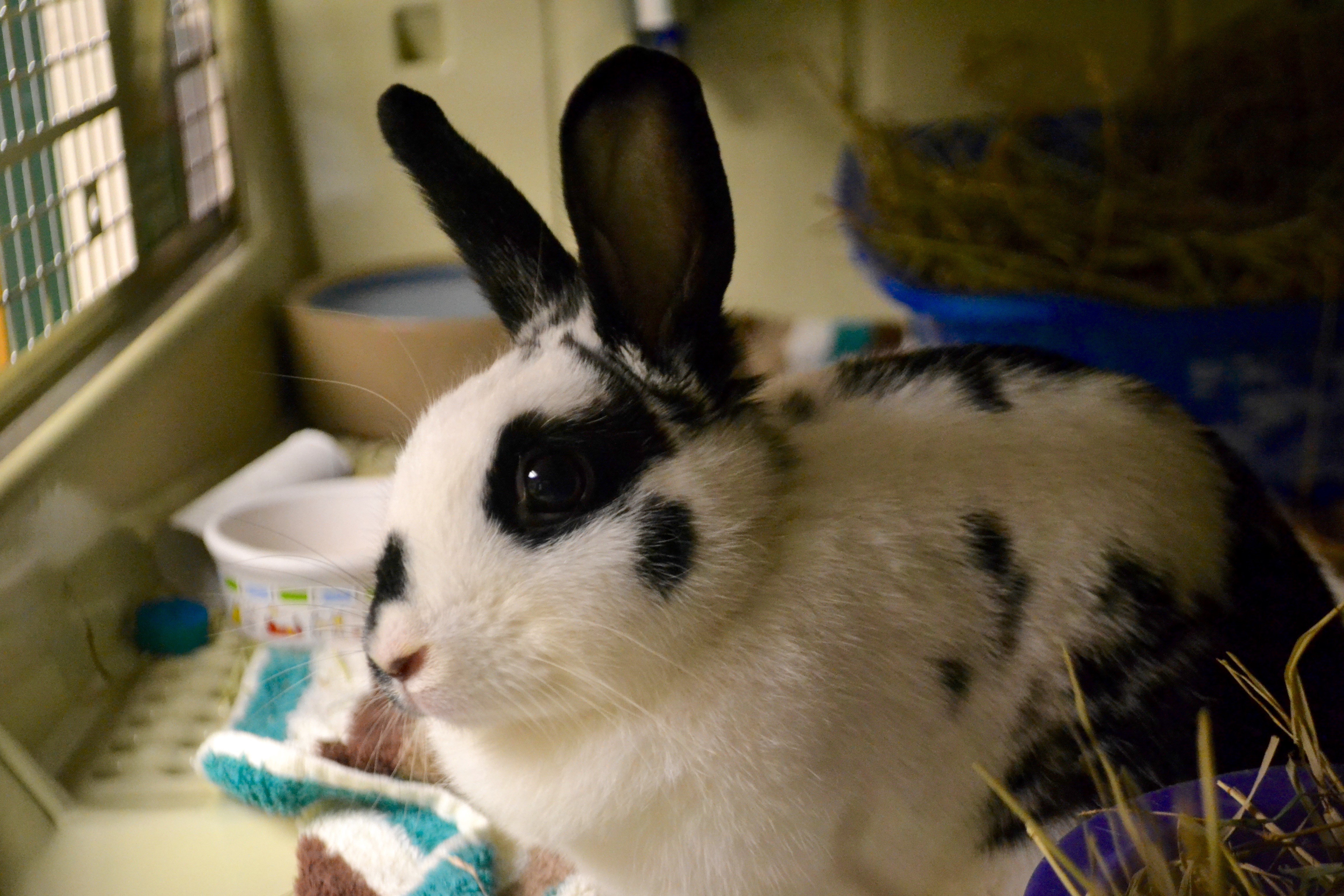
Next steps when considering surrender
If you are considering surrendering a pet, the first step is to provide our counselors with details on your pet and your situation.
DCHS collects this information through the “Owner Support Questionnaire” on our website, which will then direct you to schedule a phone consultation with the counseling staff. The more information you can provide, the better our counselors can understand the situation and prepare for the phone consultation.
At the time of the call, the counselor will discuss the concerns you are experiencing. They may ask about the timeline for your situation, what you have done so far to work through the situation, and whether you would like to keep your pet if we can provide helpful resources. Counselors can offer additional consultations with our veterinary team and behavioral specialists to help resolve your concerns and make a more informed decision. If surrender is the best outcome, counselors will request additional information to create a personality profile for the pet, so that we can learn more about what other needs they may have and to make sure we have appropriate accommodations for them.
The scenarios described earlier are not uncommon and, if those owners were to call us, are situations that our counselors would gladly talk through with them.
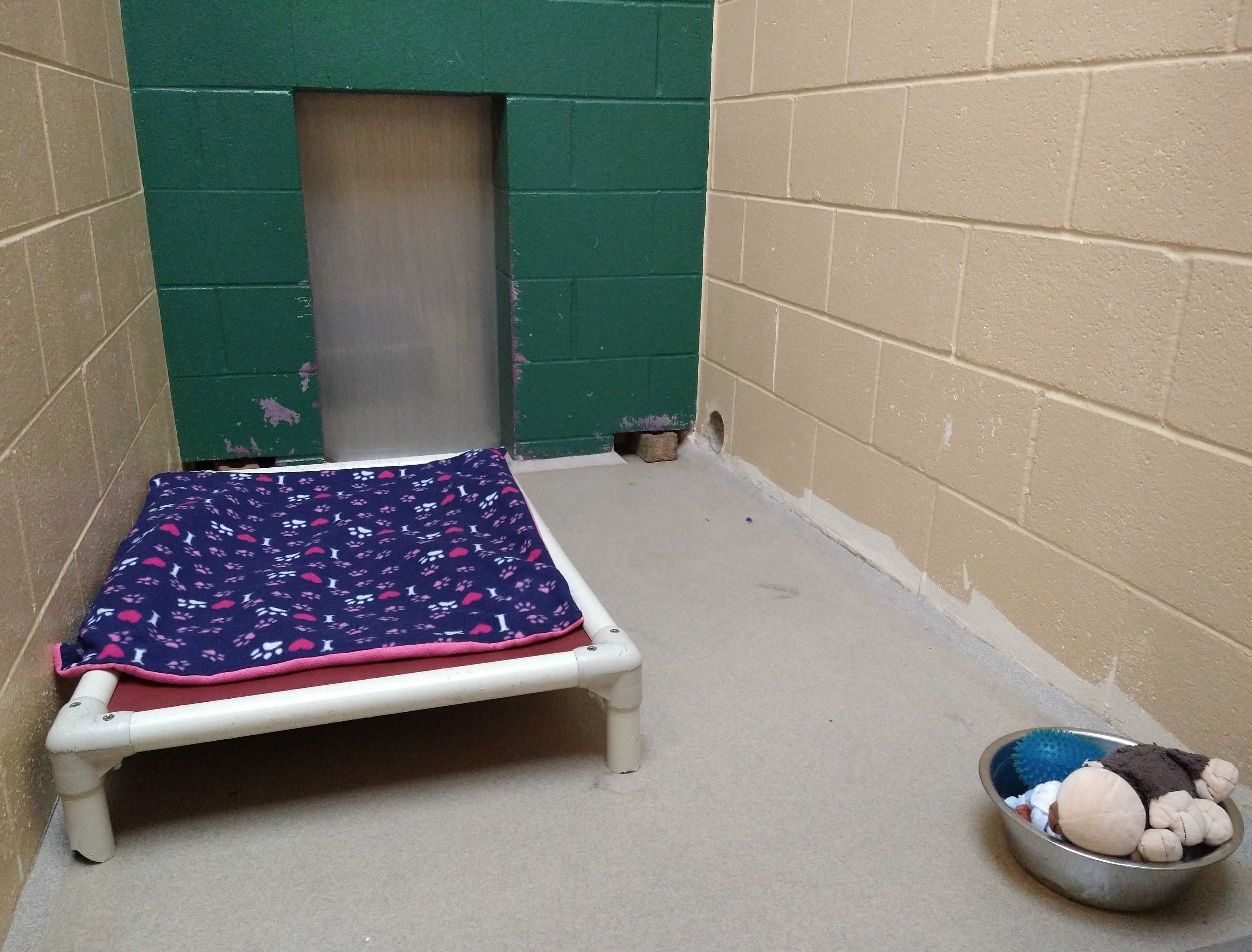
For someone whose cat is not using the litterbox properly, a counselor would likely first gather additional information about the cat’s behavior, the home set up, others that live in the home (both human and animal), and any changes that may have happened recently. Since this family went to the vet, we would ask for those records for our own veterinarians to look over.
With all of this helpful information, the counselor may be able to pick out a few things that could be contributing to the cat’s change in litterbox habits. Stressors such as a new baby, a recently adopted new pet, or even home construction can impact our furry family members. This family’s counselor may suggest smaller changes to the litter box set up, such as moving or adding litter boxes, changing the type of litter, or removing litter liners or litter box hoods. They may also discuss how to do a slower reintroduction to new family members and ways to create more safe and stress-free spaces for the cat – structured play time and pheromone products can be incredibly helpful for stress relief!
Of course, the cat in the scenario mentioned earlier would benefit from testing to determine if there is a medical cause – but testing can be expensive. Animal care, especially vet care, can be incredibly expensive, and DCHS believes that should NOT be a barrier to keeping your pet. Some veterinary clinics can offer services at a lower or even income-based cost. The counselor would be able to share some clinics in the area or some financial aid programs that the family could look into.
For destructive dogs (like the one mentioned in the second scenario), there could be many serious implications for the family. When housing is at risk, it creates urgency to find a solution to the problem. A consult with this owner could be a little more complicated given this urgency, but that doesn’t mean it is an impossible situation.
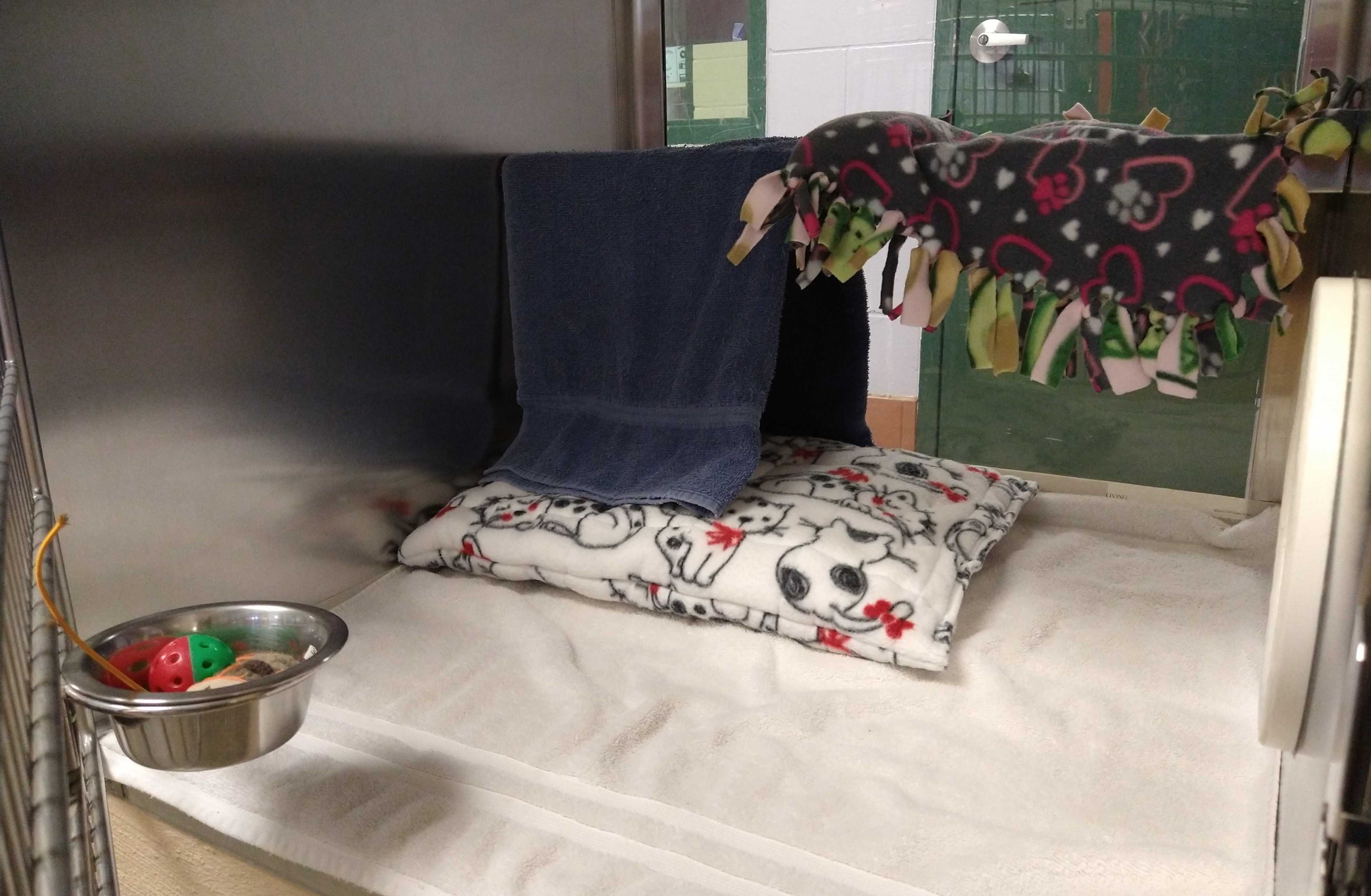
To start, a counselor would point out that the dog is still very new to the home, and it can take time to adjust. There are new people, new smells, new surroundings and, most importantly, no routine. Animals appreciate routine as much as people. It offers predictability and stability, which is important when adjusting to a brand-new home.
The counselor working with this family would first discuss “The Rule of Three,” which is a helpful reminder that it takes time to settle in. Our "Rule of Three" worksheet offers a basic timeline and what to expect at each point after you’ve brought home a new family member. The first few days are a transition period where the new pet may be much more excitable and show some less-than-desirable behaviors. At three weeks, everyone is getting more used to the new routine and settling into their new life. At three months, most pets are completely comfortable and feel a sense of home.
The family in the above scenario may just need to manage the dog’s behavior for a short time until he is comfortable and knows that it is ok to be alone when his family needs to leave to do human things. Counselors would offer some recommendations for how to manage the behaviors in the meantime.
For example, a very helpful tool when managing the behaviors described above can be using a crate or containing the dog in a smaller room. When using this method, it is very important to make sure that there is a positive association with these spaces and that they are never used for punishment. Additionally, a dog with a tendency to chew on items can be given an appropriate toy for them to play with or chew on. Just like us, pups can get bored when alone and for them, chewing on something is much more entertaining.
Another suggestion the counselor would offer is additional exercise and enrichment while the family is home with the dog. If this family made sure to take their dog on a long walk or run, or threw a toy for a bit before they left, they could wear him out and use up some of that anxious energy. He could then just happily nap while the family goes about their day away from home.
If the behavior continues, there are still other options the family could try, such as finding a dog-walker, going to doggy-daycare, working with a dog trainer, or even talking to their vet about options for stress relief. Of course, managing these behaviors can take time. If the family is under a time constraint, then rehoming or surrendering their new dog may be their only option.

The surrender process at DCHS
If it turns out that surrender is the best option for you and your pet, our counselors will schedule an appointment for you, where you and your pet will meet with a counselor in-person. The timeline for scheduling the appointment can vary from days to weeks. This will depend on the urgency of the situation, the number of animals in the shelter at that time, and availability of the resources that your pet may need.
At the time of your surrender appointment, the counseling staff will work through any remaining paperwork or questions with you and, once you are ready, they will be there to help your pet start their journey towards the next chapter in their life.
DCHS operates with a Managed Intake philosophy, which means we work with owners to schedule appointments to bring their pets in. This gives us the opportunity to plan and prepare for your pet. Taking the time to collect behavior or personality information, as well as previous veterinary history, can help the shelter teams create a care plan ahead of time, which helps with your pet’s transition into this new environment and can shorten the time they are in the shelter environment. We can also ensure we have the resources to provide each animal the best care and appropriate housing, resulting in healthier and happier animals.
Additionally, scheduling allows us to plan ahead for animals that might need a little more attention, like those with specific medical or behavioral needs, and try to take them in at a time where the needed resources are available to them. The shelter is a very stressful place for animals no matter how much we try to make it comfortable. They are meeting so many new people, seeing new animals, and smelling new smells, and they have a brand-new routine to learn. The more we can plan instead of react, the more opportunity we have to try and make their stay with us as easy as possible.
There are plenty of situations where surrendering a pet is what’s best not only for the owner, but for the pet as well. DCHS offers inclusive support to anyone in need because we understand that surrender is a tough choice for a pet parent to make. It takes strength to recognize that surrendering or rehoming a pet gives them the chance at finding a new, loving home.
In fact, surrendering a pet can be one of the more selfless choices that a person makes because they are looking out for the wellbeing of a beloved member of their family.
Aisha Jansen is a Shelter Resource Supervisor at DCHS.
